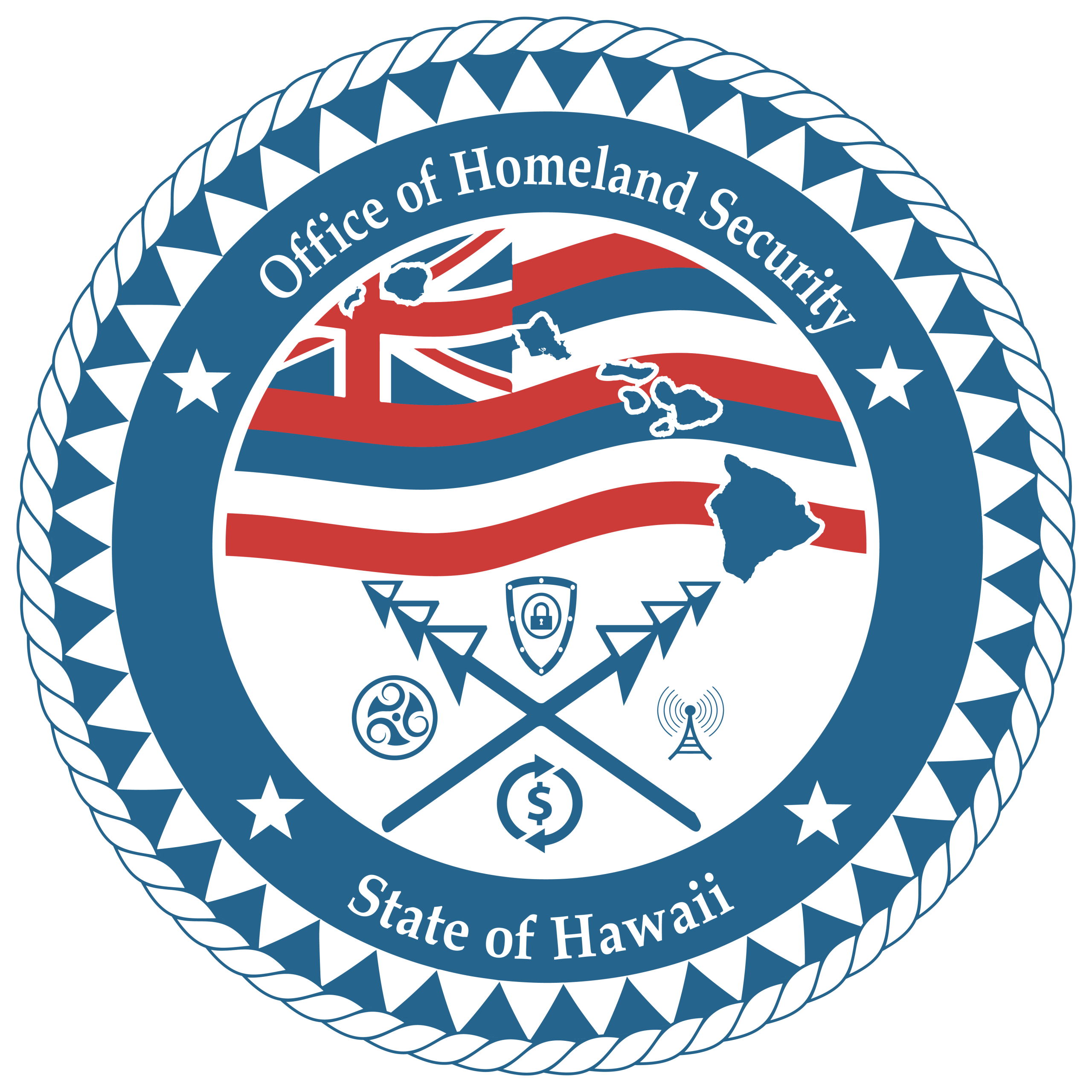Targeted Violence and Terrorism Prevention
HSFC’s counterterrorism efforts include programs to prevent targeted violence . We take a whole-of-community and public health approach to targeted violence prevention. Our strategies include:
- Education and training on topics like domestic terrorism, violent extremism, and threat assessment
- Support for threat assessment teams (TAT)
- Anonymous suspicious activity reporting tools
- Incident notification tools for retailers , members of the visitor industry , and educational institutions
- Networking with community resource providers who prevent violence
- Leading Hawai`i’s team for the National Governors Association Policy Academy on Targeted Violence
- Facilitate information sharing groups on specific subject matter such as cyber, vaccine, and campus security
- Holding HSFC partner meetings that include a diverse group of leaders from all sectors of critical infrastructure
- Developing a liaison program

Outreach, Education, and Training
HSFC provides outreach, education, and training on threat assessment and targeted violence and terrorism prevention topics. Examples include information sessions on the basics of threat assessment, assistance with building threat assessment teams, briefings on domestic terrorism or violent extremism, briefings on other subject matter that organizations feel may threaten the health, safety, or well-being of their community, and outside/consultant training. We periodically bring in guest speakers for large audiences, and we coordinate with the FBI to provide a one-hour briefing on Threat Team Hawai`i to community members who might be interested. Contact HSFC for details on how to obtain training or with suggestions for training topics.
Visit the Department of Homeland Security Prevention Resource Finder page!
Threat Assessment Program
HSFC’s threat assessment program includes threat assessments for events, locations, executive travel briefs, and the development of threat assessment teams.
- Event threat assessments: Scheduled events, such as the Honolulu Marathon and the Iron Man competition
- Location threat assessments: Government buildings, such as the Federal Courthouse.
- Executive travel briefs: Briefs for government officials who may need information on how to stay safe when traveling to locations where they may encounter threats to personal safety
- Threat assessment teams: Training and education for government and non-government groups who want to form threat assessment teams (TATs).
Community Resources
Targeted violence prevention begins in the community. Well before an individual escalates along the pathway to violence, direct service providers and other community members support individuals by relieving life stressors and mitigating risk factors. Ideally individuals who receive help will feel less isolated and recognize that violence is not the solution to their challenges. Here you can find information about resources available within the community. Fusion centers were created for the purpose of networking, so if you would like help contacting an agency or suggestions for additional resources, contact HSFC .
In addition, HSFC values our community resource contacts as intelligence customers. We proactively share information at the unclassified level with social service agencies by distributing products, offering briefings, and inviting providers to public events and trainings. See our NGO registration page for information on how to receive information. Contact HSFC@hawaii.gov for more information or to apply to join TTH or TTE.
